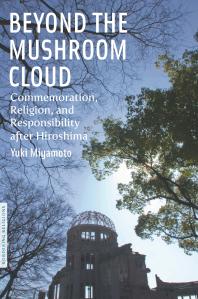(Ebook) Beyond the Mushroom Cloud : Commemoration, Religion, and Responsibility after Hiroshima by Yuki Miyamoto ISBN 9780823249312, 082324931X
This monograph explores the ethics and religious sensibilities of a group of the hibakusha (survivors) of 1945Gs atomic bombings. Unfortunately, their ethic of Gnot retaliation, but reconciliationG has not been widely recognized, perhaps obscured by the mushroom cloudGsymbol of American weaponry, victory, and scientific achievement. However, it is worth examining the habakushasG philosophy, supported by their religious sensibilities, as it offers resources to reconcile contested issues of public memories in our contemporary world, especially in the post 9-11 era. Their determination not to let anyone further suffer from nuclear weaponry, coupled with critical self-reflection, does not encourage the imputation of responsibility for dropping the bombs; rather, hibakusha often consider themselves GsinnersG (as with the Catholics in Nagasaki; or bonbuGunenlightened persons in the context of True Pure Land Buddhism in Hiroshima). For example, Nagai Takashi in NagasakiGs Catholic community wrote, GHow noble, how splendid was that holocaust of August 9, when flames soared up from the cathedral, dispelling the darkness of war and bringing the light of peace!G He even urges that we Ggive thanks that Nagasaki was chosen for the sacrifice.G Meanwhile, Koji Shigenobu, a True Pure Land priest, says that the atomic bombing was the result of errors on the part of the Hiroshima citizens, the Japanese people, and the whole of human kind. Based on the idea of acknowledging oneGs own fault, or more broadly oneGs sinful nature, the hibakushaGsG ethic provides a step toward reconciliation, and challenges the foundation of ethics by obscuring the dichotomyies of right and the wrong, forgiver and forgiven, victim and victimizer. To this end, the methodology Miyamoto employs is moral hermeneutics, interpreting testimonies, public speeches, and films as texts, with interlocutors such as Avishai Margalit (philosopher), Sueki Fumihiko (Buddhist philosopher), Nagai Takashi (lay Catholic thinker), and Shinran (the founder of True Pure Land Buddhism).
*Free conversion of into popular formats such as PDF, DOCX, DOC, AZW, EPUB, and MOBI after payment.


